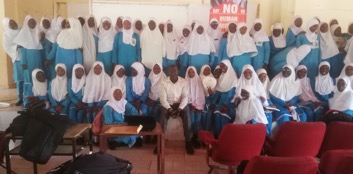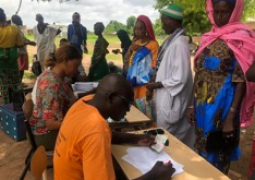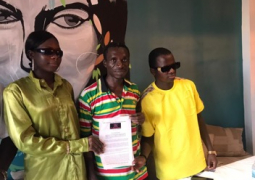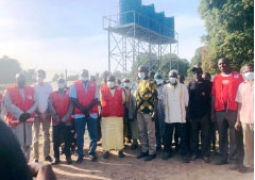
It is an indisputable fact that human trafficking is becoming a growing challenge hindering the development of nations, thus the need for all to join hands and combat this ugly practice.
NAATIP is the leading agency mandated to protect, prevent and prosecute against Trafficking In Persons in The Gambia. Thus, the fight against this heinous crime is a priority task of government as government has committed resources to that regard.
At the awareness forum, Tijan Faal, deputy investigator at NAATIP, acknowledged that human trafficking is a grave and growing threat affecting nations and the act can occur both internally and externally.
The three main elements of trafficking, he added, are the act, means and the purpose, saying it is important to create more awareness on the definition of the act and which category of the population is most vulnerable.
“This act is to exploit the victims and this involves different forms some of which includes, sexual exploitation prostitution, domestic servitude, forced labour especially in farms and mining field.”
He described the act as a serious phenomenon, which is greatly affecting the youths of the country.
Faal reminded that another new mode which is also on the rise is organ harvesting and called on students they have a great role in amplifying their voices in their local communities.
“In human trafficking, the person is the commodity assets, who is normally subjected to the practice and that the act knows no boundary. So trafficking can happen both internally and externally and The Gambia is a transit and a source destination. The main evidence in trafficking is the victim.”
He thus urged all to refer cases believed to be a trafficking case to the NAATIP and divulged that human trafficking is somehow similar to human smuggling.
He observed that poverty, conflicts, drought and unemployment, are the main drivers forcing people to fall victim.
He shared some tips with participants on how best to identify victims, adding that victims are mostly lured into brothels, markets, restaurants, bars and lodges and hangouts and border posts.
He informed that they are under surveillance or control and as such, they are not at liberty to narrate their ordeals to outsiders due to fear.
Due to the seriousness and gravity of the act, Faal disclosed that the minimum punishment for trafficking is 15 years, while maximum carries a life imprisonment.
“However, the ‘maslaha’ attitude is the main obstacle in prosecuting perpetrators as some victims are reluctant to report the case to the authorities.”





